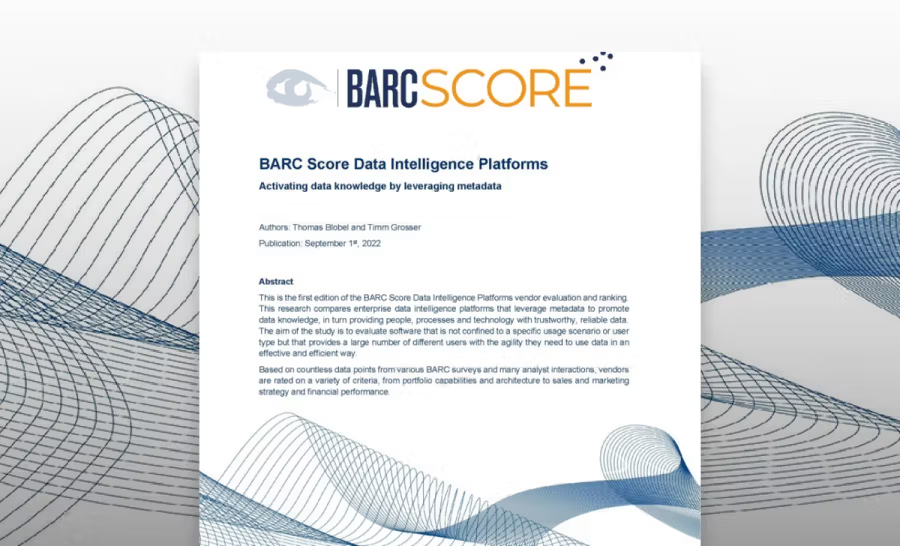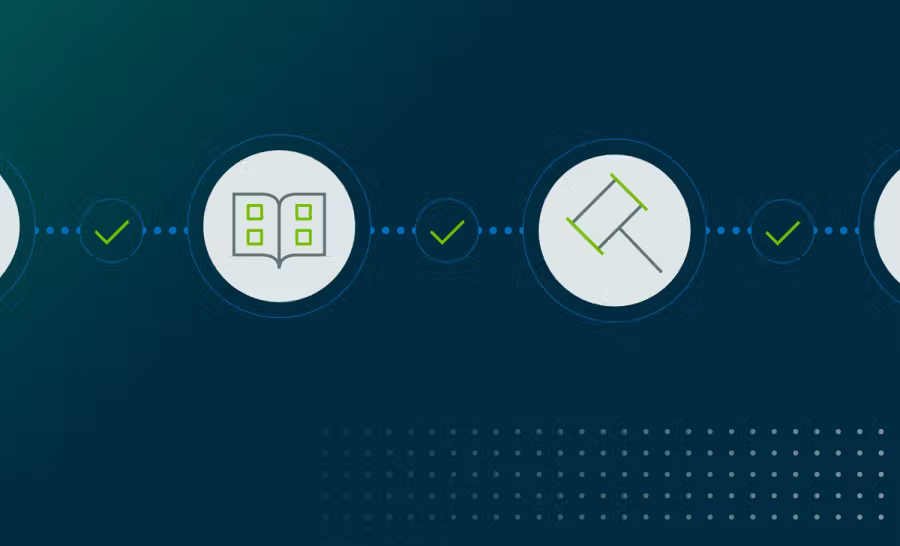Data catalogs, data governance, and the journey to data intelligence

You’re on a journey. From the CDO to the data analyst to front-line customer support, everyone is using data to do their job and advance their organizational goals.
Increasingly, data leaders require data intelligence to achieve success.
But you can’t implement data intelligence if your data isn’t governed. Data governance is the process of managing data as a strategic asset so it is accurate, accessible, secure, and consistent.
Turning data into an asset that drives innovation and competitive advantage, improves operational efficiency, and better serves your customers is key to winning in today’s challenging economic environment.
Organizations of all sizes need to harness the power of data — and one of the best ways to jumpstart your data intelligence journey is with a data catalog.
***
Learn how Definity Financial, a group of innovative property and casualty insurance companies, put their organization on the fast track to data intelligence with the power of Collibra Data Catalog and Google Cloud.
Get the on-demand webinar, ‘Jumpstart your journey to data intelligence with a data catalog.’
Running on Google Cloud? Learn more about governing data with Google Cloud and Collibra.
***
The truth is that a vast majority of businesses realize data is crucial to business decisions.
But most routinely fail to put data at the core of their day-to-day operations.
Even businesses that install data management solutions fail to adopt them at scale, and so waste the opportunity to truly become data driven.
Start with data governance
Data governance is the practice of managing and organizing data and processes to enable collaboration and compliant access to data. Data governance allows your data citizens — and that’s everyone in your organization — to create value from data assets.
The benefits of data governance are extensive and include:
- Speeding data discovery
- Increasing data quality
- Improving data security
- Driving data collaboration
- Clarifying data lineage, ownership, and stewardship
If you’re serious about data governance, the first step is to explore a data catalog.
Understand the data catalog
A data catalog creates and maintains an inventory of an enterprise’s data assets across its entire digital environment. It’s the first step on the journey to data intelligence.
A data catalog provides a reliable solution for the discovery, description, and organization of data sets. Data catalogs do this by leveraging metadata, which is the data that describes the data. Metadata is often subdivided into three categories:
- Technical metadata provides information on the format and structure of the data, such as the data models, storage schemas, file layouts, and APIs.
- Business metadata provides business knowledge in plain language to help understand the business context.
- Operational Metadata describes when and how the assets were created and accessed.
The primary role of the data catalog is to leverage metadata to make digital assets easier to find, use, and trust. When you can find, use, and trust data, you’re in a position to drive business decision-making informed by data.
7 steps to data intelligence
Getting started on the journey to data intelligence can be simple and straightforward. But you’ll want a plan to make sure you don’t roll out a data catalog that no one uses. Too often, businesses implement data intelligence but never achieve widespread adoption.
Here are the seven most-critical steps to reaching data intelligence with a data catalog:
- Assess data assets: You need to know what you have, where it’s stored, and how it’s being used.
- Define data standards: You need to codify how data should be collected, processed, and stored, including everything from data types and formats to naming conventions and data validation rules
- Implement a data catalog: Your data catalog will serve as your central repository for all your organization’s data assets.
- Foster data literacy: To educate your colleagues, you’ll want to develop a program to communicate the importance of data and how to use it in training programs, workshops and other initiatives that encourage data-driven decision-making.
- Promote data-driven decision making: Creating a data-driven culture drives better business outcomes, according to a recent IDC study.
- Ensure data quality: It’s essential to ensure your data catalog has accurate, up-to-date, trustworthy data. Data quality checks, data validation, and ongoing monitoring of data quality will help.
- Monitor usage and performance: With Collibra Usage Analytics, you can see just how active your colleagues are on your Collibra data catalog.
Jumpstart your data intelligence journey with a data catalog
Governance is a critical aspect of modern organizations, and data leaders can play a key role in shaping and implementing effective data governance strategies.
By establishing clear data ownership, defining data standards, implementing data quality processes, ensuring data security, fostering data literacy, promoting data-driven decision making, encouraging data sharing, and fostering a culture of data stewardship, you can help ensure your organization’s data assets are being used effectively and responsibly.
And you can help your organization leverage data to drive business growth, improve operational efficiency, and better serve your customers.
With the increasing importance of data in today’s digital world, effective data governance is essential.
Ready to learn more? Get the on-demand webinar, ‘Jumpstart your journey to data intelligence with a data catalog.’
Running on Google Cloud? Learn more about governing data with Google Cloud and Collibra.
Related articles

Data IntelligenceJanuary 27, 2022
Accelerate IFRS-17 Compliance with Data Intelligence Platform

Data IntelligenceSeptember 27, 2022
Collibra is a Market Leader in first-ever BARC Data Intelligence Platform Vendor Evaluation

Data IntelligenceOctober 28, 2022
The must-have checklist for maximizing the value of your data catalog and governance investments with Collibra

Data IntelligenceMarch 10, 2022
Improve data literacy and data sharing in government
Keep up with the latest from Collibra
I would like to get updates about the latest Collibra content, events and more.
Thanks for signing up
You'll begin receiving educational materials and invitations to network with our community soon.
